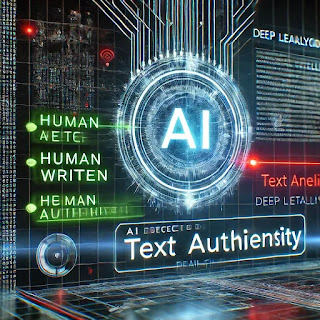ZeroGPT is a tool designed to **detect AI-generated text** (e.g., content from ChatGPT, GPT-4, or similar models). It analyzes writing patterns to distinguish between human-written and AI-generated content. Here’s an overview of its reliability and limitation.
How ZeroGPT Works
1. Pattern Analysis: It uses algorithms to detect low "perplexity" (predictability) and "burstiness" (variation in sentence structure), which are common in AI-generated text.
2. Training Data: Likely trained on datasets containing both human and AI-generated text to identify statistical differences.
Reliability of ZeroGPT
Strengths
Accuracy Claims: ZeroGPT’s website states over 98% accuracy in detecting AI-generated text, but real-world performance varies.
Free and Accessible: Easy to use for quick checks on short texts.
Limitations:
1. False Positives/Negatives:
- May flag **human-written text** as AI (e.g., highly structured or formal writing).
- Can miss **sophisticated AI-generated text** (e.g., heavily edited or hybrid human-AI content).
2. Text Length Sensitivity: Works better on longer texts (1,000+ characters). Short snippets are harder to analyze.
3. Evolving AI Models: Newer AI models (e.g., GPT-4o) produce more human-like text, reducing detection accuracy.
4. Ethical Concerns: Over-reliance on detectors can lead to unfair accusations (e.g., in academia) or privacy issues if sensitive text is uploaded.
Independent Testing Results
- Studies show AI detectors like ZeroGPT often have **60–80% accuracy** in realistic scenarios, far below their advertised claims.
- Tools struggle with non-English languages, creative writing, or hybrid human-AI content.
Alternatives to ZeroGPT
1. Turnitin: Widely used in academia, integrates AI detection but faces similar accuracy debates.
2. GPTZero: Focuses on education, with transparency about uncertainty levels.
3. Originality.ai: Targets marketers and publishers, offering plagiarism + AI detection.
Should You Trust ZeroGPT?
Use Cases:
Low-Stakes Checks: Useful for informal content screening (e.g., social media posts).
Academic Caution: Avoid using it as sole proof of AI use in student work due to false positives.
Best Practices:
Combine with human judgment (e.g., analyze writing style inconsistencies).
Avoid submitting sensitive/private documents.
Test with known AI/human samples to gauge its reliability for your needs.
Final Verdict
ZeroGPT is a **moderately reliable tool** for preliminary AI detection, but it should **not be treated as definitive**. Always verify results with other methods, and stay skeptical of absolute claims about accuracy. For critical decisions (e.g., academic integrity), use institutional tools or expert review.
